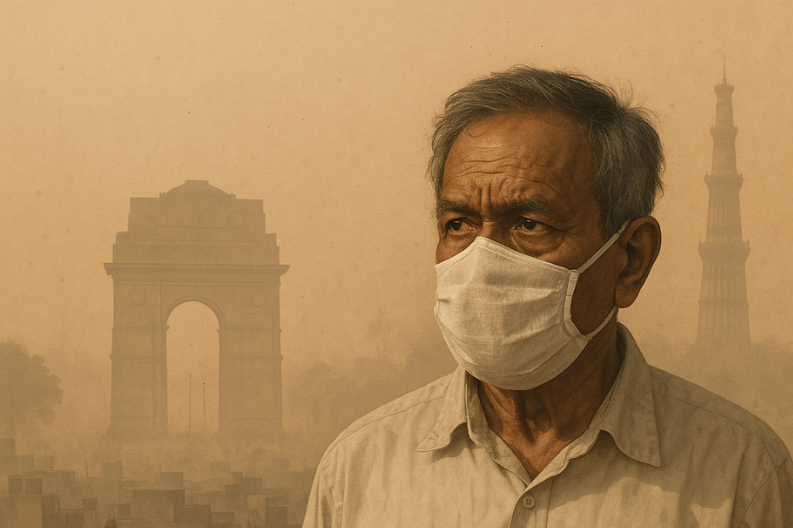A new report from the University of Chicago suggests that residents of Delhi could gain an average of 8.2 years of life if air pollution levels were reduced to meet global standards set by the World Health Organization (WHO). The findings come from the Air Quality Life Index (AQLI), a tool developed by researchers at the university that translates air pollution data into its impact on life expectancy.
The AQLI focuses on particulate matter, particularly PM2.5, which is considered one of the deadliest forms of air pollution. The report reveals that India ranks as the second most polluted country out of 252 analyzed, with pollution cutting short a total of 4.9 billion years of potential life across the nation. On average, Indians lose 3.5 years of life due to current levels of particulate pollution, compared to what would be possible if WHO guidelines of 5 µg/m³ were met.
Delhi emerges as the most affected city globally, with the potential for residents to live significantly longer lives if pollution levels fell in line with international standards. Since 1998, the city has recorded a 56.9% rise in particulate pollution. As of 2023, the average PM2.5 concentration stands at 41 µg/m³, more than eight times the WHO’s limit and slightly above India’s own national threshold of 40 µg/m³. Between 2022 and 2023 alone, pollution levels in Delhi rose by 1.2%.
The impact extends across India. Every one of the country’s 1.4 billion residents is exposed to pollution higher than the WHO recommends. Even the cleanest regions could see gains of nearly a year in life expectancy if air quality were improved. The northern plains, home to over 544 million people, face the most severe effects, with life expectancy shortened by an average of five years.
Other states are also heavily affected. Residents of Rajasthan could gain 3.3 years of life if pollution were reduced, while those in Madhya Pradesh and Maharashtra stand to gain 3.1 and 2.8 years respectively. Nationwide, about 38.9% of the population could gain an average of 1.6 years of life expectancy through cleaner air.
The AQLI, developed under the guidance of University of Chicago professor Michael Greenstone, underscores how rising pollution levels linked to rapid urban growth are taking a toll on human health. The report calls for urgent action, stressing that improving air quality is not just about health but about ensuring longer, better lives for millions of people.
The findings present a stark warning for policymakers and communities alike: addressing air pollution could be one of the most impactful public health measures for India, especially in its most polluted regions like Delhi.



